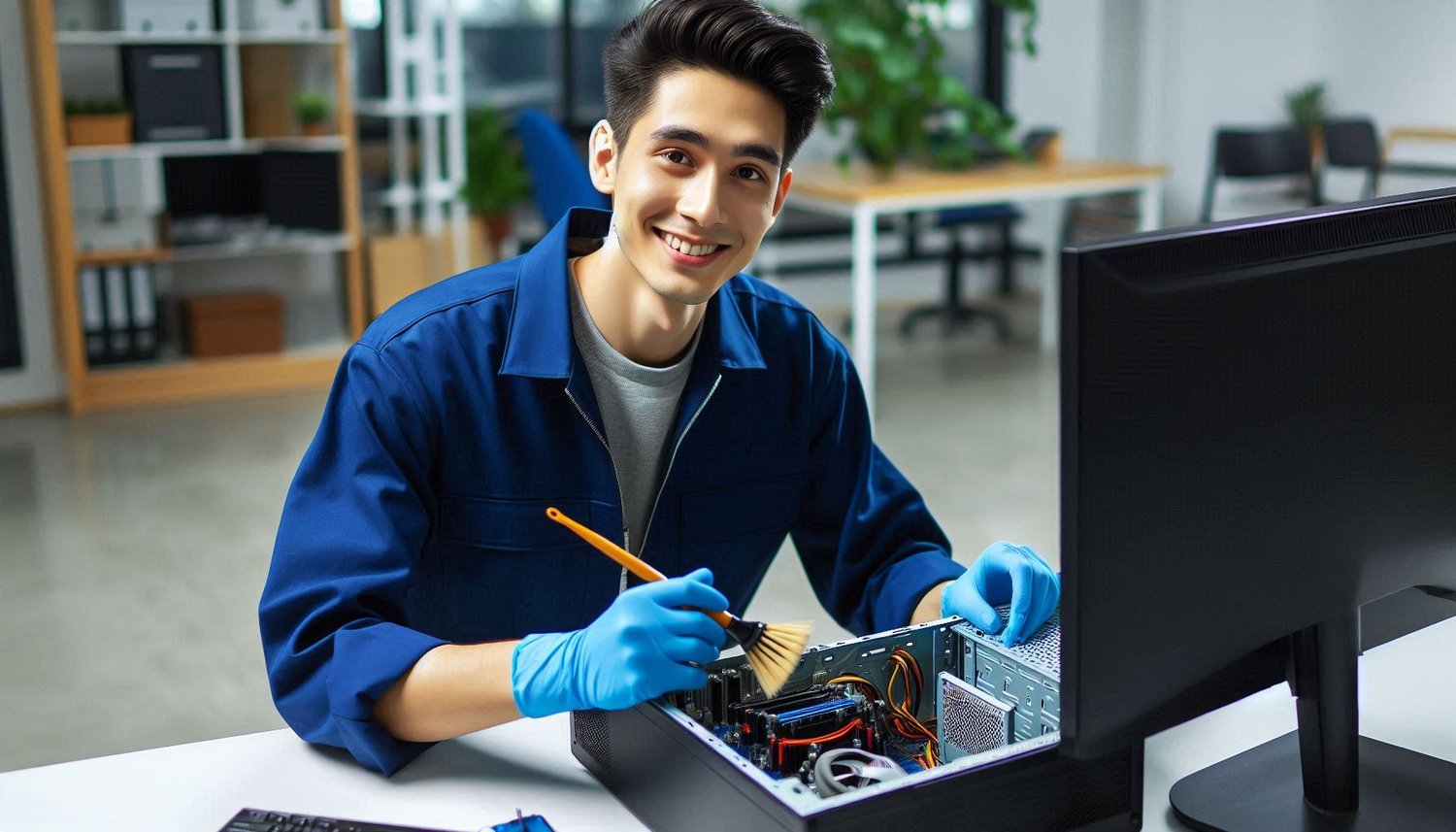In today's digital age, keeping your computer in top shape is essential for productivity, entertainment, and security. Regular maintenance ensures your PC runs efficiently, lasts longer, and avoids potential issues. Whether you're a casual user or a tech enthusiast, following these PC maintenance tips will enhance your system’s performance. Let’s dive into the top 10 PC maintenance tips for optimal performance.
1. Regularly Clean Your PC (Hardware and Software)
Over time, dust accumulates inside your computer, leading to overheating and performance degradation. To prevent this:
- Use compressed air to clean your PC’s vents, fans, and components.
- Ensure proper airflow by placing your PC in a well-ventilated area.
Additionally, clean your software by removing temporary files, old downloads, and unused programs. Tools like CCleaner can help automate this process.
2. Uninstall Unnecessary Programs
Unused programs take up valuable disk space and system resources, slowing down your computer. Go through your installed software list and uninstall programs you no longer need. For Windows users, head to Control Panel > Programs > Uninstall a program to begin decluttering.
3. Update Your Operating System and Software
Keeping your operating system and all installed software updated is crucial for both security and performance. Updates often include patches that fix bugs, and vulnerabilities, and enhance overall efficiency. Most operating systems have automatic update options; ensure this is turned on. For Windows, go to Settings > Update & Security to check for updates.
4. Defragment Your Hard Drive
If you're using an older PC with a traditional HDD (Hard Disk Drive), defragmentation is vital for keeping it running smoothly. Defragmentation reorganizes fragmented data, improving read/write times and overall speed. Windows has a built-in tool for this:
- Type “Defragment and Optimize Drives” in the search bar.
- Select your drive and click “Optimize.”
If you're using an SSD (Solid State Drive), defragmentation is unnecessary but keep the drive optimized by running the Windows Optimize Drives tool.
5. Manage Startup Programs
Many programs automatically start when you turn on your computer, slowing down the boot process and consuming resources. To speed up your startup:
- Press Ctrl + Shift + Esc to open Task Manager.
- Navigate to the Startup tab.
- Disable unnecessary programs from launching at startup.
This will improve your PC’s boot time and free up memory for more critical applications.
6. Use Antivirus Software and Perform Regular Scans
Keeping your computer protected from malware and viruses is essential for maintaining optimal performance. Use a trusted antivirus program like Norton, Bitdefender, or Kaspersky, and run regular system scans. Ensure that real-time protection is enabled to stop threats before they cause damage. Malware not only compromises security but can also significantly slow down your computer.
7. Keep Your Drivers Up to Date
Drivers are essential for communication between your operating system and hardware components like the GPU, sound card, and network adapters. Outdated or faulty drivers can cause performance issues, crashes, and hardware malfunctions. Regularly check for driver updates through:
- Device Manager (for Windows users).
- Manufacturer's websites for your hardware components.
Alternatively, tools like Driver Booster can automatically detect and update outdated drivers.
8. Free Up Disk Space
Over time, your hard drive accumulates unnecessary files, which can slow down your PC. Free up disk space by:
- Deleting old and unused files.
- Running Disk Cleanup (Windows) to remove temporary files, system files, and unnecessary Windows features.
- Storing files on cloud services like Google Drive, OneDrive, or Dropbox to reduce local storage use.
9. Upgrade Your Hardware (RAM and SSD)
If your PC is consistently slow despite regular maintenance, consider upgrading its hardware. Two of the most effective upgrades are:
- RAM (Random Access Memory): Adding more RAM allows your computer to handle more tasks simultaneously, improving multitasking and overall performance.
- SSD (Solid State Drive): Upgrading to an SSD can significantly boost boot times, file transfer speeds, and the performance of resource-intensive applications.
These upgrades are especially beneficial for older computers.
10. Back Up Your Data Regularly
Data loss can be catastrophic, especially if it's caused by hardware failure, malware, or accidental deletion. Protect your files by regularly backing them up to an external drive or cloud storage. Windows offers File History, while macOS users can utilize Time Machine for backups. Additionally, cloud-based services like Google Backup and Sync or Dropbox provide automated solutions for secure data storage.
Bonus Tip: Monitor System Performance
Regularly monitoring your PC's performance can help you identify potential issues before they escalate. Tools like Task Manager (Windows) or Activity Monitor (macOS) allow you to keep track of CPU, memory, disk, and network usage. Additionally, third-party applications like HWMonitor or Speccy provide detailed insights into your system’s health.
Conclusion
Maintaining your PC’s performance is essential for longevity, efficiency, and security. By following these top 10 PC maintenance tips, you can optimize your computer’s speed, extend its lifespan, and avoid costly repairs. Whether you’re clearing out dust, updating software, or upgrading hardware, regular upkeep will ensure that your PC runs like new. Make these tips part of your routine, and you’ll enjoy a faster, smoother, and more reliable computer experience.



Comments ()